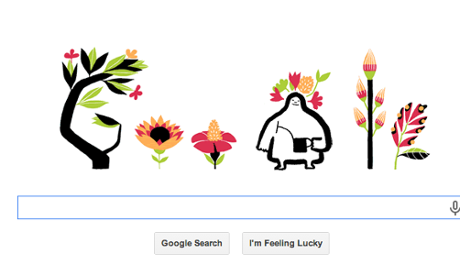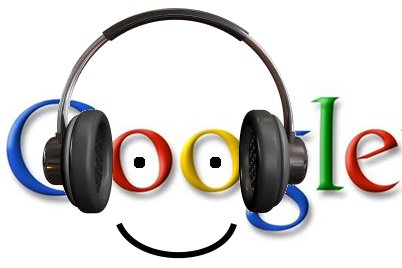Gooole Biography
Source(google.com)Mark Zuckerberg’s letter to shareholders included in Facebook’s IPO filing contains a pretty bold vision for Facebook to not just connect people and enable them to share, but to fundamentally restructure the way that the world works:
By helping people form these connections, we hope to rewire the way people spread and consume information. We think the world’s information infrastructure should resemble the social graph — a network built from the bottom up or peer-to-peer, rather than the monolithic, top-down structure that has existed to date. We also believe that giving people control over what they share is a fundamental principle of this rewiring.
We have already helped more than 800 million people map out more than 100 billion connections so far, and our goal is to help this rewiring accelerate. [emphasis added]
That sounds pretty lofty, but if you recognize that Facebook provides a social networking service that hundreds of millions of people use — but forget for a moment that it’s Facebook — it’s quite a bold “social mission.” And there are many examples of how the service has been used as a key tool in affecting change on everything from opposition to the Canadian DMCA to the Arab Spring. There’s no doubt that the service makes it easier for people to organize in a more bottom-up way.
But, once you remember that it’s Facebook we’re talking about, the vision sounds more problematic. Could Facebook ever truly bring about a peer-to-peer, bottom-up network? The notion seems to be an inherent contradiction to Facebook’s architecture — as a centralized, proprietary, walled garden social networking service. Facebook may enable a more bottom-up structure, but it’s a bit disingenuous for Zuckerberg to decry a monolithic, top-down structure when Facebook inserts itself as the new intermediary and gatekeeper. As a centralized, proprietary, walled garden service, Facebook is a single point for attacks, control, and surveillance, never mind controversial policies or privacy concerns. Facebook may enable a more bottom-up and peer-to-peer network compared to many things that came before, but there is something fundamentally at odds with a truly distributed solution at the core of its architecture and its DNA.
To realize the full potential of bottom-up, peer-to-peer social networking infrastructure, we need autonomous, distributed, and free network services — the sort of vision that StatusNet/Identi.ca or Diaspora have tried to bring about. Rewiring the world to create a more bottom-up, peer-to-peer network is a bold vision for Zuckerberg to put forth — and one that Facebook has advanced in many ways — yet it’s fundamentally at odds with the reality of Facebook as a centralized and proprietary walled garden.
Read the comments on Techdirt.
Creative Commons Attribution-ShareAlike 4.0 International Permalink | Comments Off
The Songwriters Association of Canada Wants To Embrace File Sharing, But Does It Have the Right Approach?
February 6, 2012 10:52 pm by Blaise Alleyne — Music Technology — business models copyright file sharing levy licensing p2p sac techdirt
This post originally appeared on Techdirt.
in 2007, the Songwriters Association of Canada gained some international headlines with a proposal to legalize non-commercial peer-to-peer file sharing through an ISP levy. This sort of proposal wasn’t new, but had not been so prominently put forth by an artist organization before. There were serious problems with the proposal, but it stimulated a healthy debate and it started from many correct premises — that file sharing should be embraced, that digital locks and lawsuits were not a way forward, etc. But it was a non-voluntary, “you’re a criminal” tax that could open the floodgates for other industries to demand similar levies.
I was a member of the Songwriters Association of Canada from 2007-2011, and I had the opportunity to express my concerns about the proposal to many people involved. Last year, I attended a session with an update on the proposal, and was surprised how much it had changed. The proposal had dropped the legislative angle in favor of a business to business approach, with an actual opt-out option for both creators and customers of participating ISPs. Unlike groups behind other licensing proposals, the SAC has actually been responsive to many concerns, and unlike other artist groups, the SAC takes a decidedly positive view on sharing music and the opportunities technology provides to creators. This attitude comes through in the proposal:
Rather than a legislative approach to the monetization of music file-sharing as we originally envisioned, the S.A.C. is now focused on a “business to business” model that requires no new legislation be enacted in Canada.
Our basic belief however remains the same: Music file-sharing is a vibrant, open, global distribution system for music of all kinds, and presents a tremendous opportunity to both creators and rights-holders. [...]
People have always shared music and always will. The music we share defines who we are, and who our friends and peers are. The importance of music in the fabric of our own culture, as well as those around the world, is inextricably bound to the experience of sharing. [emphasis changed]
As the copyright debate heats up again in Canada in light of SOPA and new pressures on pending legislation, this positive attitude towards peer-to-peer file sharing was expressed again in a recent TorrentFreak interview with the SAC VP, Jean-Robert Bisaillon:
We think the practice [of file-sharing] is great and unstoppable. This is why we want to establish a regime that allows everyone to keep on doing it without stigmatizing the public and, instead, find a way for artists and rights holders to be fairly compensated for the music files that are being shared. [...]
Other positive aspects include being able to find music that is not available in the commercial realm offer, finding a higher quality of digital files, being able to afford music even if you are poor and being able to discover new artists or recommend them to friends. [...]
Music is much better off with the Web. The internet network allows for musical discovery despite distance and time of the day. It has sparked collaborations between musicians unimaginable before. It has helped artists to book international tours without expensive long-distances charges and postal delays we knew before. [emphasis added]
Gooole Dosti SMS In Hindi urdu Marathi In English Wallpaper Images Marathi Sad Photo

Gooole Dosti SMS In Hindi urdu Marathi In English Wallpaper Images Marathi Sad Photo

Gooole Dosti SMS In Hindi urdu Marathi In English Wallpaper Images Marathi Sad Photo

Gooole Dosti SMS In Hindi urdu Marathi In English Wallpaper Images Marathi Sad Photo

Gooole Dosti SMS In Hindi urdu Marathi In English Wallpaper Images Marathi Sad Photo

Gooole Dosti SMS In Hindi urdu Marathi In English Wallpaper Images Marathi Sad Photo

Gooole Dosti SMS In Hindi urdu Marathi In English Wallpaper Images Marathi Sad Photo

Gooole Dosti SMS In Hindi urdu Marathi In English Wallpaper Images Marathi Sad Photo

Gooole Dosti SMS In Hindi urdu Marathi In English Wallpaper Images Marathi Sad Photo

Gooole Dosti SMS In Hindi urdu Marathi In English Wallpaper Images Marathi Sad Photo

No comments:
Post a Comment